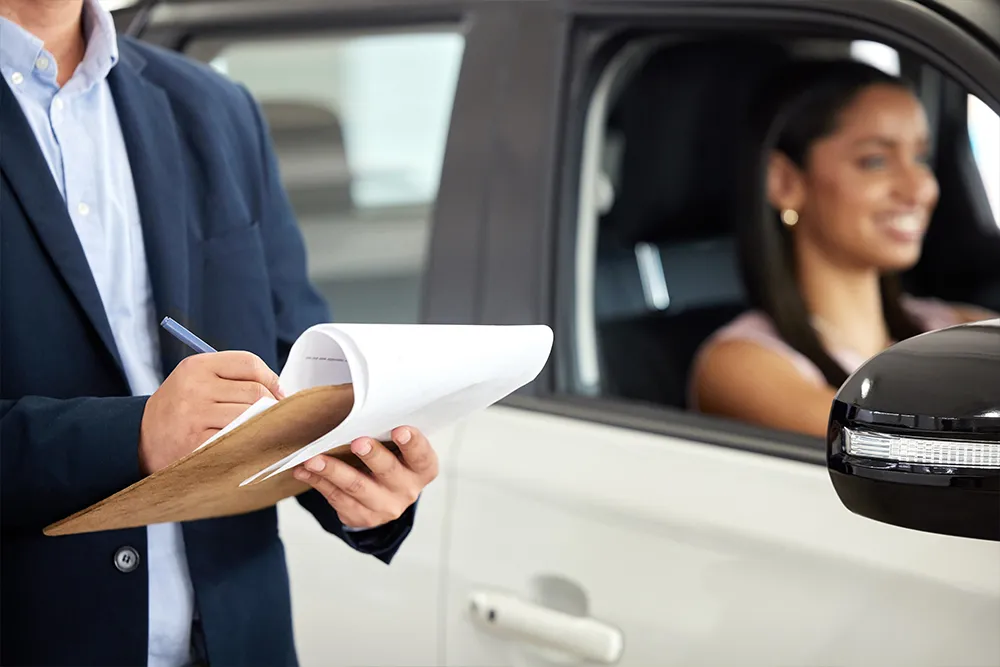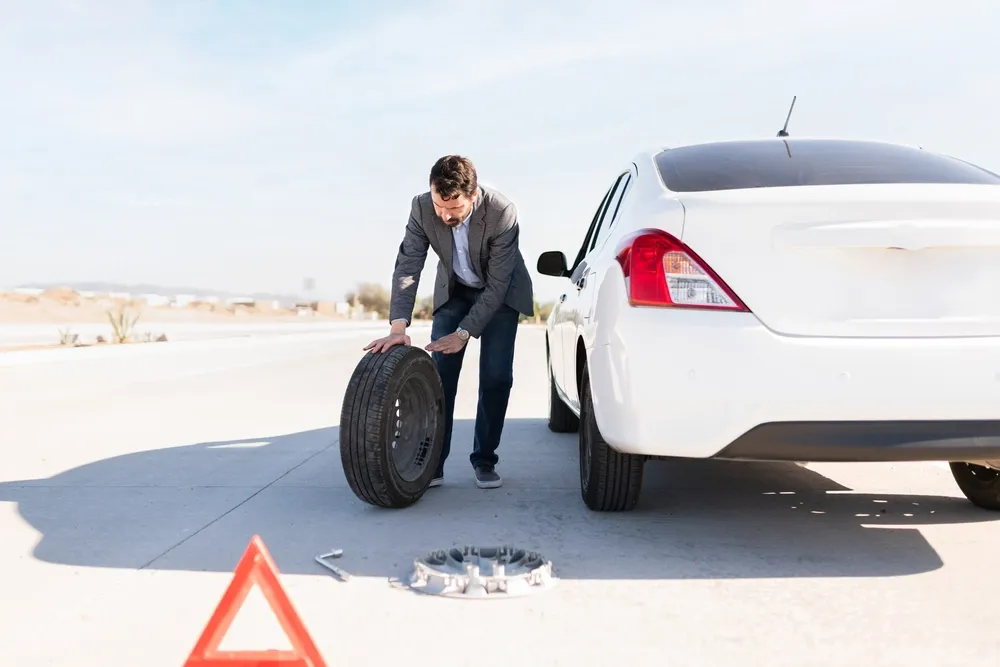Rental agreements hide important details that can cost you hundreds or thousands if you skip the fine print. This article is updated with key 2025 developments of rental contracts and walks through what to check in a rental car contract, when extra insurance actually helps, and practical tips for rental car contracts that save money and stress.
What is a Rental Car Agreement & Why Should You Read it Word by Word?
A rental car agreement is a legal contract that spells out who’s responsible for the vehicle, what fees apply, what insurance or waivers like CDW/LDW are included or optional, fuel and mileage rules, and the penalties for damage or late return. It’s not just boilerplate; it defines financial exposure if anything goes wrong. Industry reporting shows rental-company revenue and fee structures remain an important source of earnings for operators, thus making transparency vital for renters.
What To Check In A Rental Car Contract
Before you sign or click confirm, scan for all of the items below. These are the things people commonly miss that lead to surprise charges.
Total price and all included/excluded fees - Not just the base rate. Look for daily surcharges, airport concession fees, young-driver fees, and cleaning or sanitization charges. The FTC’s 2025 rule on unfair or deceptive fees targets hidden-fee practices and increases emphasis on total price transparency.
Deposit amount and hold on card — How big is the security hold, and how long until it’s released? Some companies keep hold for days after return.
Fuel policy — Full-to-full is usually the cheapest; paying for a company’s prepaid fuel often costs more. Also, understanding the best hacks to save fuel on a rent a car would be of great help too.
Mileage restrictions — Unlimited vs. per-day limits and over-mileage penalties.
Damage and inspection procedure — Insist on a written damage record and timestamped photos; note scratches, dents, and interior marks before you drive off.
Exclusions in waivers — Many Collision Damage Waivers (CDW) exclude tires, windshields, undercarriage, roof, and interior damage unless explicitly covered. Know the deductible/excess amount.
Who is an authorized driver and permitted uses (e.g., cross-border travel, ride-hailing, off-road use). Using the car outside these rules often voids protection.
Breakdown and accident process — Emergency numbers, tow policies, and whether you must get a police report for minor incidents.
Cancellation and modification terms — Fees vary widely; get any waiver or modification terms in writing.
Optional extras and upsell clarity — GPS, child seats, toll transponders, and additional driver fees should be itemized.

Do You Really Need the Extra Insurance When Renting a Car?
It depends. Your exposure depends on what your personal auto policy covers, credit-card benefits, and the waiver terms offered by the rental company.
If your personal auto insurance includes comprehensive and collision coverage and extends to rentals, you may already have primary or secondary protection, but check limits and whether it applies abroad. Consumer Reports emphasizes checking your auto policy and credit-card coverage before paying for daily rental waivers that can add up to AED 1,500-5,000.
Many major credit cards offer primary or secondary rental coverage (often limited to CDW/LDW) if you pay for the rental with the card and decline the desk waiver — but coverage varies significantly by card and country.
CDW/LDW sold at the counter is technically a waiver, not insurance; it limits the rental company’s ability to collect an excess but commonly excludes certain parts and damage types (e.g., windows, tires, underbody). If you can’t tolerate the risk of a large excess or your card/personal policy doesn’t cover rentals, the waiver may be worth it.
How Can You Spot Hidden Fees And Protect Yourself?
Understanding the common rental traps are mandatory for a smooth rental experience.
Request the full invoice before you leave the lot, not just the reservation screen. Verify every line item. The FTC’s 2025 rule pushes for clearer upfront fee disclosure, but enforcement and practice vary — Don’t assume perfect transparency.
Photograph the vehicle from every angle when you pick it up and when you return it (timestamps help). If damage disputes arise, photos are the strongest evidence.
Use a credit card, not a debit card, when possible. Credit cards offer stronger dispute rights and typically don’t immobilize your cash with large holds.
Pre-purchase independent excess insurance: In many markets, you can buy excess coverage from a specialist insurer for a fraction of the counter price (examples highlighted by consumer advocates and money-saving experts). This often covers the renter’s excess/deductible for a much lower daily rate.
What To know In a Car Rental Agreement If You’re Renting Abroad
Cross-border rules: Many contracts prohibit taking the vehicle into certain countries; you must disclose/insure for cross-border travel.
Local laws: Liability and insurance minimums vary — What’s common in one country (e.g., compulsory third-party limits) may be different elsewhere. Always check local regulations and your insurer’s territory limits. Booking and travel guides provide country-specific notes you should read before departure.
Common Dispute Triggers And How To Avoid Them
Damage after return charges: Return the car with a clerk present and get written confirmation of condition.
Fuel disputes: Use the same fuel level you agreed to or show the tank on return; keep fuel receipts if you refueled independently.
Cleaning charges: If the vehicle is returned excessively dirty (smoke, pet hair, vomit), expect large cleaning fees — avoid food/alcohol in the car and use protective covers for pets or clinical messes.

Tips for Rental Car Contracts
- Save and screenshot the booking confirmation and the full contract PDF.
- Ask for the deductible/excess in writing and get a numeric figure.
- Confirm whether the rental’s “insurance” is primary or secondary relative to your personal policy.
- Keep a paper copy of emergency contacts, rental agreement number, and police-report instructions in case of accident.
If the desk pushes expensive add-ons, ask for a written refusal line on the contract, it helps if they later claim you accepted. Knowing and adhering to these tips for a smooth rental process will make sure your experience is hassle-free everytime.
FAQs
- What to check in a rental car contract first?
Total price (all fees), damage policy and deductible, fuel and mileage rules, authorized drivers, and cancellation terms.
- Do you really need the extra insurance when renting a car?
Only if your personal auto policy and credit-card benefits don’t provide comparable coverage, or you cannot accept the rental company’s excess/deductible. Consumer groups recommend verifying both before buying the desk waiver.
- How long will a security hold stay on my card?
Hold durations vary; many companies release holds within a few days, but they can take a week or longer depending on bank processing. Ask the agent and check with your card issuer.
- Are CDW and LDW the same?
They are similar in purpose: CDW (Collision Damage Waiver) and LDW (Loss Damage Waiver) are waivers that limit the rental company’s ability to charge you for damage or theft, but both often have exclusions.










